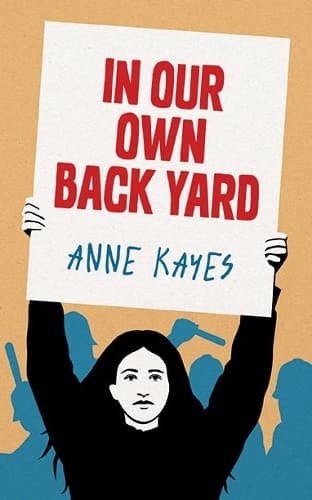Review: In Our Own Back Yard
Reviewed by Dionne Christian
It’s 40 years since the 1981 Springbok Tour divided New Zealand like almost no other event in our history, cleaving us into two halves: those who supported the South African rugby team’s visit, believing sport and politics should not mix, and those who took the contrary view, saying we must oppose South Africa’s apartheid regime by honouring commitments we made not to play sport with its teams.
Using terms like “civil unrest” to describe events during the tour’s 56 days – in July, August and September - almost downplays the division and violence it created. Author and cultural commentator Gordon McLauchlan had branded us a “passionless people” partly because of the taciturn brand of conformity and conservatism that we demonstrated, but reaction to the tour showed what happened when we got well and truly fired up.
Hundreds of thousands of New Zealanders, from all walks of life, took to the streets in dozens of marches and demonstrations throughout the country saying the passion for rugby could and should not blind us to racial oppression and brutality. Rugby enthusiasts fought back with equal fervour. Police tactics, often heavy-handed, in trying to “manage” protestors then keep them and sports fans apart, were frequently called into question.
Some say it is the closest we have come to civil war since the New Zealand wars of the 1800s. Ultimately, it heightened awareness of racism in this country and blew apart the myth that we had the best race relations in the world.
Compare this with pictures from last year’s Covid-19 lockdown when New Zealanders were the very picture of calm compliance. How to bring these two events together in a book ostensibly for young adults?
Anne Kayes’ impressive novel In Our Own Back Yard does this – and more - with cogency, bringing a power and intensity to the events of four decades ago while contrasting them with the pandemic. In doing so, she considers questions about equality, what it takes to find one’s voice and use it, and how we learn from painful experiences.
The contrast between tour protests and pandemic isn’t always seamless, but it provides a useful way to introduce then drive the coming-of-age story. It’s March 2020 and Liza, her husband and their two teenage children are at home because of the Covid-19 lockdown. Challenged by her children to remember an event that, when she was a teenager, affected the entire country, Liza starts writing her memories of the Springbok tour.
While the tour and the pervasive racism it exposed in New Zealand are the focus of the book, Kaye deftly weaves in other plotlines: feminism, domestic violence and young love among them. In the hands of a less skilled writer this might be too much; here it serves to make the story all the more real.
Her characters, too, are remarkably relatable. Incidents where they’re forced to confront deep-seated racism in their own lives are poignant without being overblown; opposing points of view are presented with equanimity. Young Liza’s struggles with conflicting emotions over her troubled first love are also affecting.
Kayes, an award-winning author of two chapter books for 8 to 12 year olds, has achieved something special with this, her first YA novel. It’s clear much research, some of it involving first-hand interviews with prominent figures in the anti-tour movement, has gone into the book. This provides accuracy and authenticity; the characters come to life and linger after the story draws to a satisfying – albeit slightly sentimental – conclusion.
Reviewed by Dionne Christian
